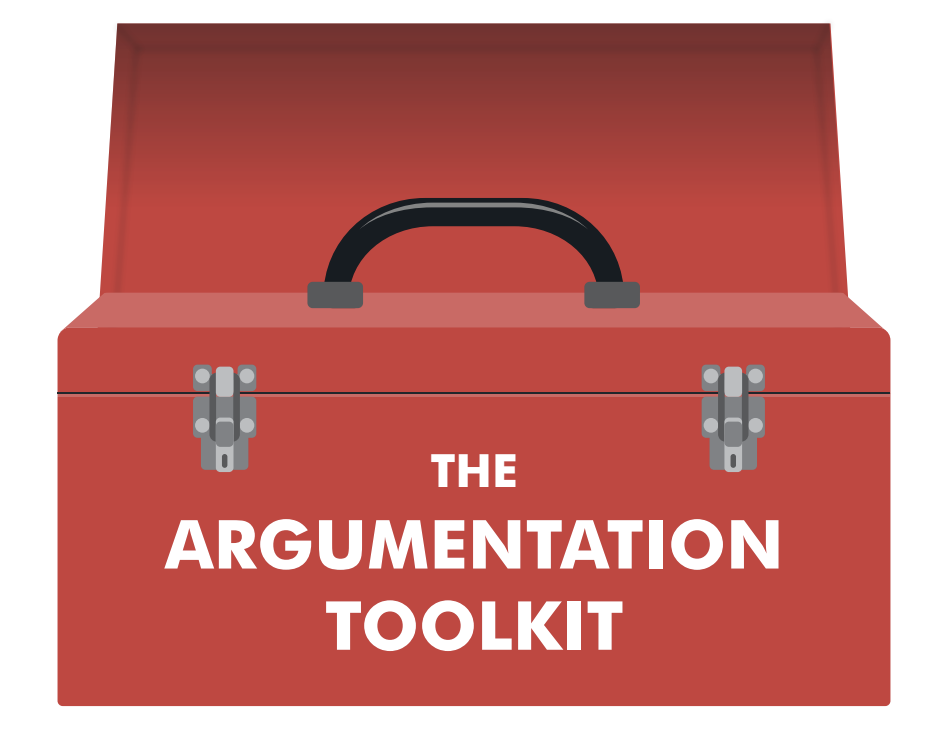What is the role of evidence in a scientific argument?
Introductory Module Session 1
Session Goals:
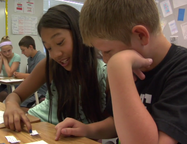
- Teachers will be introduced to four areas of argumentation in which students need extra support: 1) Evidence, 2) Reasoning, 3) Student Interaction and 4) Competing Claims.
- Teachers will develop an understanding of argumentation as a social process in which students build, question and critique claims using evidence and reasoning.
- Teachers will be introduced to a Card Sort as an instructional activity that encourages students to think about what evidence does and does not support a claim.
- Teachers will design a new lesson or revise an existing lesson to integrate argumentation into their science instruction.*
- Teachers will identify areas of argumentation that are challenging for their students.*
*Note: These final two goals are only applicable if the module is implemented as multiple sessions
Session Slides:
Introductory Module Session 1 PDF
Agenda:
- Video: Introduction to module
- Activity: Mystery card sort 1
- Video & Discussion: Encouraging talk about evidence
- Session takeaways
*Extension – Try it with your students!
Materials:
1. Video: Introduction to module
Watch the video below, which discusses the four areas of argumentation that students need extra support.
2. Activity: Mystery card sort 1
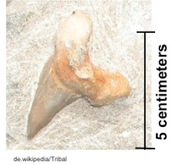
The task:
- Work in pairs or small groups to sort cards as supporting, maybe supporting, or not supporting the claim: The fossil tooth came from a prehistoric mountain lion, which is related to mountain lions that live today.
- Make sure to articulate why you sort cards as you do.
Setting up your cards:
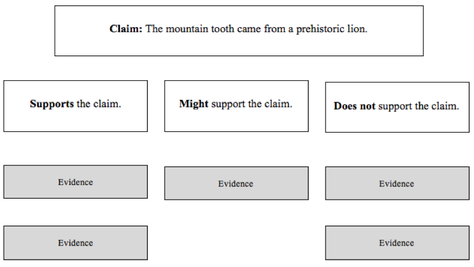
Discussion about card sort:
- What did you talk about when you were discussing the evidence?
- What types of questions did you ask?
- How can you envision your students engaging in this activity? What would work well? What challenges might they have?
3. Video & Discussion: Encouraging talk about evidence
Watch the video below, which describes ways to support student discussions around evidence.
Discussion Questions:
- How do the card sort and other types of activities encourage students to talk to each other and develop their ideas?
- How can students use evidence not only to support claims but also to question and build on the ideas of their peers?
4. Session takeaways
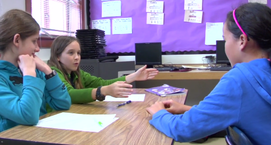
- Evidence is observations or data about the natural world that is used to support claims.
- Evidence can be used in different ways, and we use our understanding of science concepts (reasoning) to make sense of that evidence.
- Some pieces of evidence can be stronger than others in support of a claim.
- Encouraging talk about evidence supports students in thinking critically and building understandings of the science concepts.
*Extension – Try it with your students!
The task:
- Develop or revise a lesson to encourage students to talk about evidence. This lesson could be a card sort or it could be another type of activity, such as making sense of data from investigation.
- For the next meeting, bring the lesson you developed, as well as potentially student artifacts (such as writing, or a video clip) of students engaged in this.
View Other Sessions
Introductory Module Agenda
| Session Name | Description | Length |
|---|---|---|
| Session #1: What is the role of evidence in a scientific argument? | This session introduces the four areas of argumentation that students need extra support in, and then focuses specifically on the role of evidence. | 45 minutes |
| Session #2: How does considering competing claims support students’ use of evidence and reasoning? | This session illustrates how engaging students in competing claims supports their use of evidence and reasoning, and also deepens their understanding of the science content. | 45 minutes |
| Session #3: What is the role of reasoning in a scientific argument? | This session focuses on the role of reasoning, and introduces an instructional strategy that can help students incorporate reasoning into their written arguments. | 45 minutes |
| Session #4: How do we support students in interacting with peers during argumentation? | This session highlights the interactive nature of argumentation using an activity in which students analyze data with peers. | 45 minutes |

